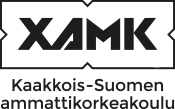International marketing (5 cr)
Code: MR00AF22-3007
General information
Enrollment
08.11.2021 - 21.11.2021
Timing
10.01.2022 - 30.04.2022
Number of ECTS credits allocated
5 op
Virtual portion
3 op
RDI portion
2 op
Mode of delivery
40 % Contact teaching, 60 % Distance learning
Campus
Mikkeli Campus
Teaching languages
- English
Seats
10 - 25
Degree programmes
- Degree Programme in Tourism and Service Business
Teachers
- Natalia Kushcheva
Teacher in charge
Natalia Kushcheva
Groups
-
MRKT19SVTourism and service business, online studies
-
MRMI19SP
-
MRMI19SV
Objective
You can: - discuss the importance of marketing abroad - outline the basic principles and design of international marketing - analyze some of the theories underlying international marketing - examine the environments of international marketing - assess foreign market entry strategies and decisions - differentiate between international and domestic product life cycle and the application of this concept in formulating marketing strategies at thedifferent stages of product life cycle
Content
What are the various ways through which companies enter international markets? How investment policies in foreign countries may affect companies going international? How do you evaluate information collected through international marketing research? What are the typical problems encountered in conducting research in international markets and how can you solve them? How can you become aware and understand the complexity and interconnection of the modern tourism and hospitality industry?
Materials
This course is carried out in Learn eLearning environment.
This course contains online material, independent written assignments, online tests and final exam. If you need to get individual counselling, you could get it online, or by meeting the teacher, pointing out the reason and the date by sending a message to the teacher.
A few links are provided at the course pages, but various reading material from other interesting articles obtained from newspapers, internet and other sources are welcome.
Teaching methods
This course provides students with an overview of the hospitality and tourism industry along with marketing skills for this very diverse and integrated industry.
This course will present an overview of the marketing challenges faced by organizations in international tourism and service business environments and provide a framework that can be used to guide international marketing decisions. Emphasis will be placed on the role that marketing managers play in designing marketing strategies to cope with the cultural, social, economic, political, and legal differences found in the international marketplace.
Power point presentations and class discussions, case studies, group projects, project presentations.
This course could be done totally in online form. Tasks for online studies are given in Learn course page.
Employer connections
Business cases will be studied to build a framework within which theoretical models can be viewed and applied.
While studying the course, it is possible to use the material got from your working place.
Exam schedules
All course tests are designed so, that they are opened only on a given period, which is mentioned at the topic test.
At the end of the course you will pass an online final test. Instructions you could find in Learn.
Evaluation scale
1-5
Assessment criteria, good (3)
Students can: a. describe how the political, legal, and religious environments are likely to affect firms operating in international markets b. manage appropriate methods of information search to discuss the major advantages and risks likely to be encountered by firms operating internationally c. carry out and formulate measurement standards that can be used to measure and evaluate international marketing performance d. evaluate the characteristics of different media options in international markets and design effective promotional programs e. discuss market research models and identify the most appropriate one which a firm can apply in deciding on a particular mode of entry f. manage and develop team and individual work g. apply the ethical principles to unfamiliar situations in marketing development
Assessment methods and criteria
You are able to:
- outline the basic principles and design of hospitality marketing
- explain the role of travel motivators and destination life cycles
- identify the management and employee positions in a hospitality organization and discuss the responsibilities and activities involved with each in achieving the goals of financial profit and guest service
- outline effective quality management techniques for people, facilities, products, and economics in the hospitality industry
- analyze the impact of marketing style on guest services and employee relationships
Qualifications
No prerequisites
